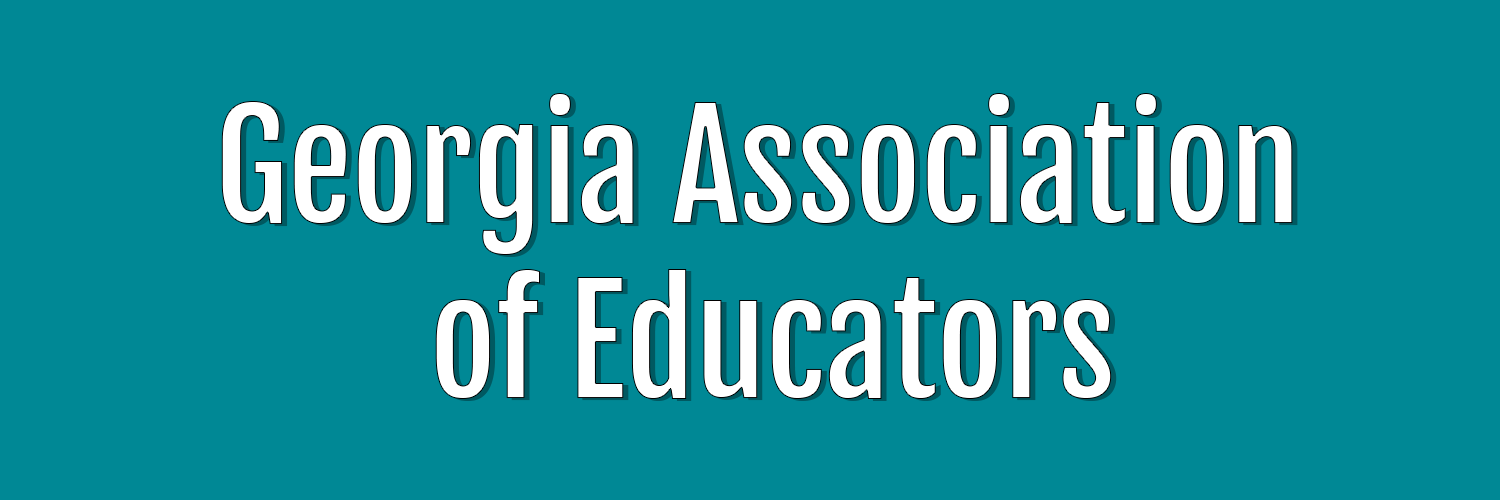To opt out of GAE dues:
- Enter your information into the form below and click “submit.”
- On the resulting page, click the link to open your customized form. You will also receive an email with a link to your form.
- Print the form. If you check the appropriate box about needing a printed version, we’ll mail you a copy of the form.
- Sign and date the form.
- Mail the completed form to the address at the top of the form. We highly recommend sending it via certified mail.
*Please note: If you are currently paying GAE dues via automatic credit card or Electronic Funds Transfer (EFT) payments from your bank, you should also contact your bank directly to stop the payments.
The Georgia Association of Educators (GAE) is the state’s largest union for teachers and other public school employees. GAE represents approximately 30,000 workers including teachers, school administrators, and professionals working in other roles in Georgia’s public schools.
Those who object to paying GAE dues should know that Georgia law has long protected public employees from being forced to financially support a union against their will. Furthermore, the U.S. Supreme Court’s 2018 decision in Janus v. AFSCME reaffirmed that all public employees have a constitutional right to choose for themselves whether to pay any union dues or fees.
You can opt out of GAE dues by filling out the form above, printing it and mailing it to the union.
*Please note: If you are currently paying GAE dues via automatic credit card or Electronic Funds Transfer (EFT) payments from your bank, you should also contact your bank directly to stop the payments.
Frequently Asked Questions
The process for ending dues payments to GAE may differ depending on which method of payment you are currently using. For example, if you are currently paying GAE dues via automatic credit card or Electronic Funds Transfer (EFT) payments from your bank, you should be able to contact your bank directly to stop the payments – you do not need to wait for GAE to confirm receipt of your opt-out request.
However, it’s a good idea to send your opt-out form to the union anyway. You should receive some acknowledgement of your request from GAE within a few weeks.
According the union’s membership materials, GAE dues – which also include payments to the National Education Association (NEA) – can be at least $520 per year, before adding local association dues.
No. Your employer – not the union – is responsible for the terms and conditions of your employment. Your compensation, health benefits, retirement, and anything else provided by the district will remain unchanged if you opt out of GAE.
The State of Georgia provides legal liability protection for all teachers and other certificated school personnel throughout the state’s public school system. Since the first responsibility for liability coverage lies with the state – not the union – check with the state to learn more about your legal liability coverage as a school employee. More information about the state’s liability insurance policy, including contact information, is available here.
However, the NEA does carry a supplemental liability policy that you will lose access to as a nonmember.
If you are an educator and would like personal professional liability protection unconnected to your employer and/or union, and that doesn’t require paying up to $1,000 or more per year in dues, you can obtain a policy from independent professional education associations like the Association of American Educators, Christian Educators Association International, or you can obtain a policy from a traditional insurance provider.
You may also apply for complimentary Liability Insurance through the Teacher Freedom Alliance.
While the terms of the contract will still govern your employment, union officials commonly prohibit nonmembers from participating in internal union affairs, such as attending union meetings, voting for union officers or participating in contract ratification votes. You’ll also be ineligible for any special “members only” benefits, such as discounts on additional insurance, scholarship programs, or deals the union has arranged with businesses. You may no longer receive the union newsletter or similar publications.
People have many reasons for not wanting to support the union. Some simply do not believe the services the union provides are worth the dues it charges. Others may find the union’s one-size-fits-all agenda does not serve them well. Many find the union’s political activity and use of dues to advance partisan causes, candidates and ideology distasteful. Still others believe that union officials are corrupt and unaccountable to their membership.
Sometimes people have a faith-based objection to unions’ expenditures. To learn more about some of the major public unions’ expenditures in light of common faith beliefs, click here.
Many unions allow opt outs at various times throughout the year. However, in their union membership contracts, a number of unions have specified certain times during the year (“windows”) stipulating when they will allow or process opt-out requests.
GAE has specified an opt-out window ranging from August 1st to the 31st. Although this is the timeframe that the union has specified for processing opt-outs, you can certainly fill-out an opt-out request at Opt Out Today any time throughout the year.
GAE is a private organization with minimal obligations to disclose financial information to members.
However, the IRS requires unions’ 990 tax return to be a public document, and these can be found online at sites like this. GAE reports using the Employer Identification Number (EIN) 58-1086686. Here is their most recent filing.
Additionally, a portion of your local dues typically fund several related organizations, such as state and national affiliates. GAE is an affiliate of the National Education Association (NEA), which is required to file annual financial reports with the U.S. Department of Labor. The most recent report filed by the NEA is available here.


